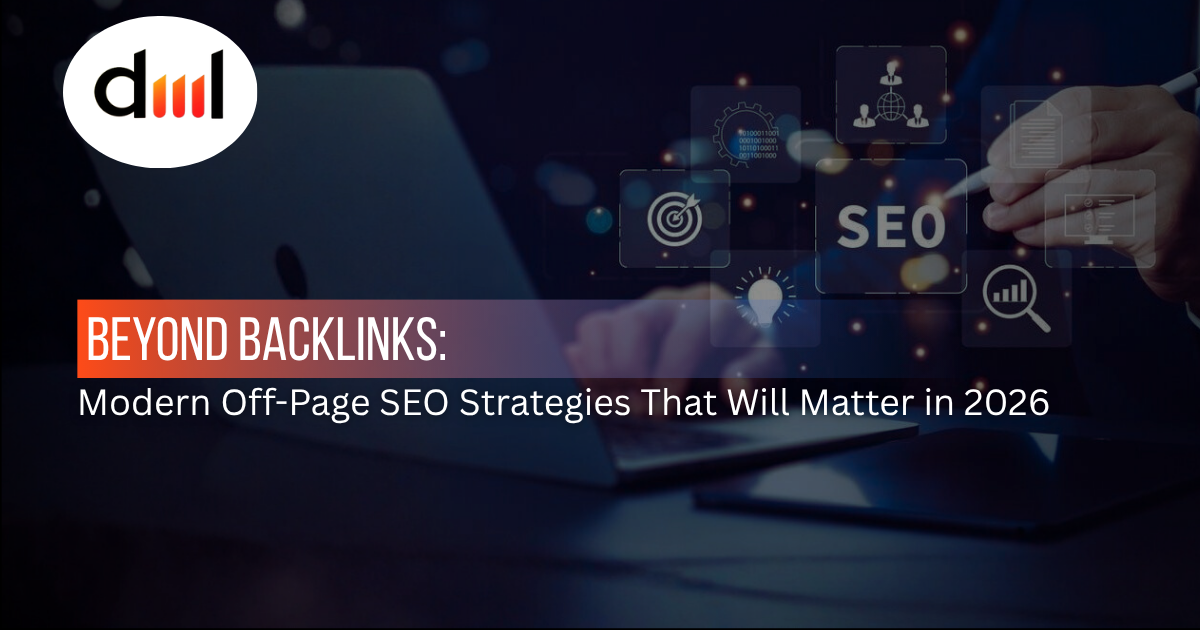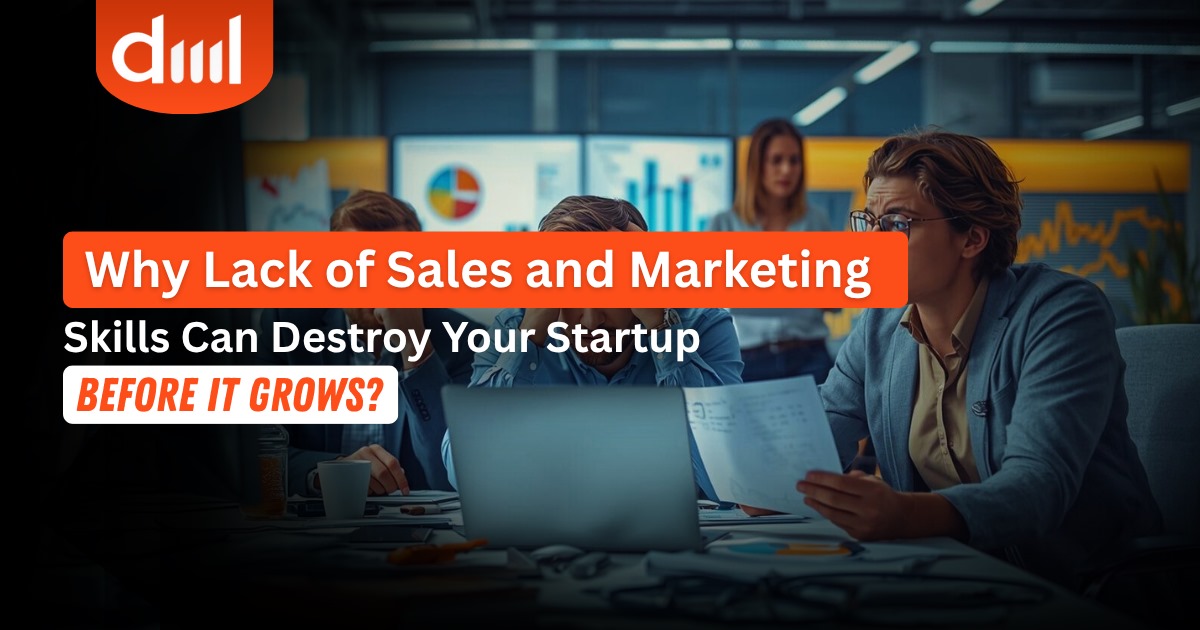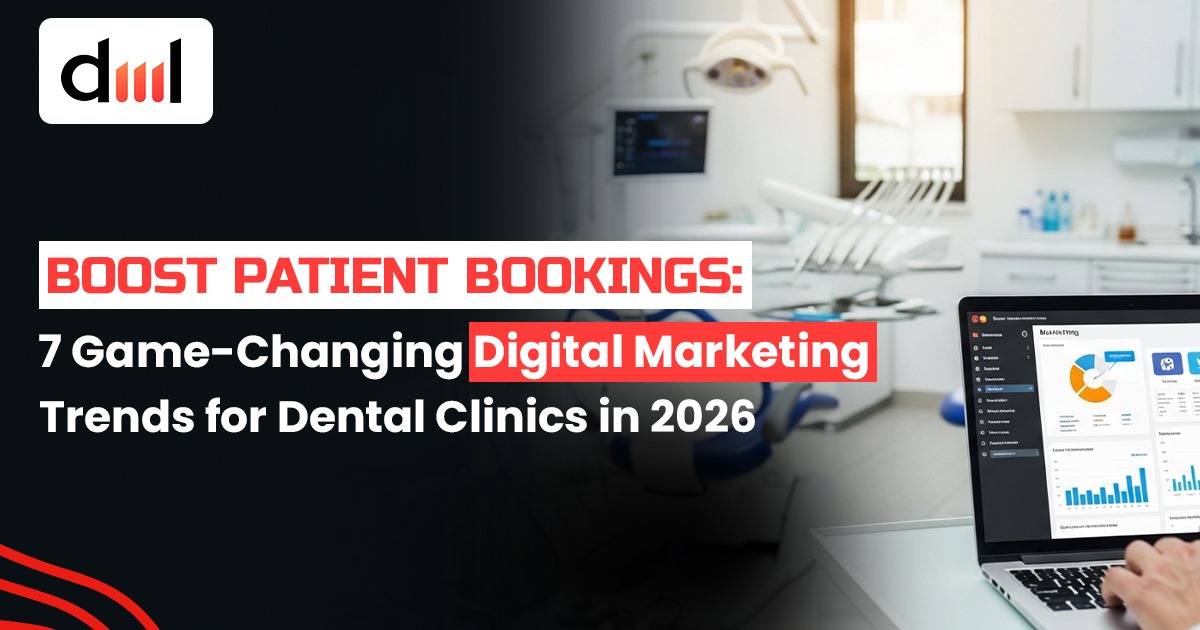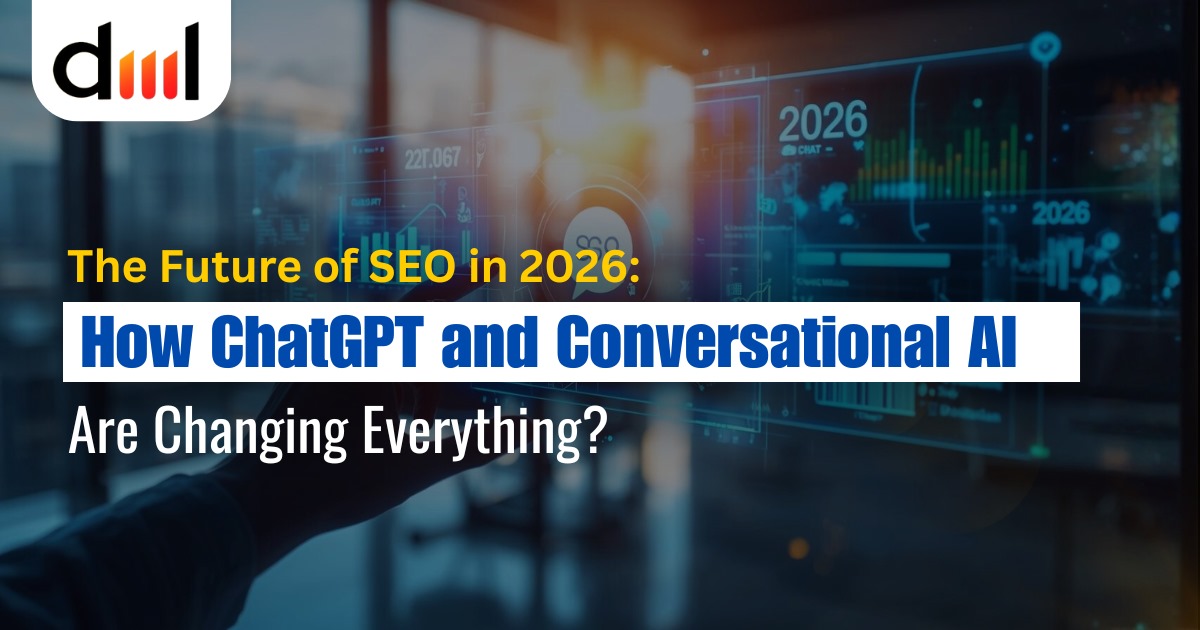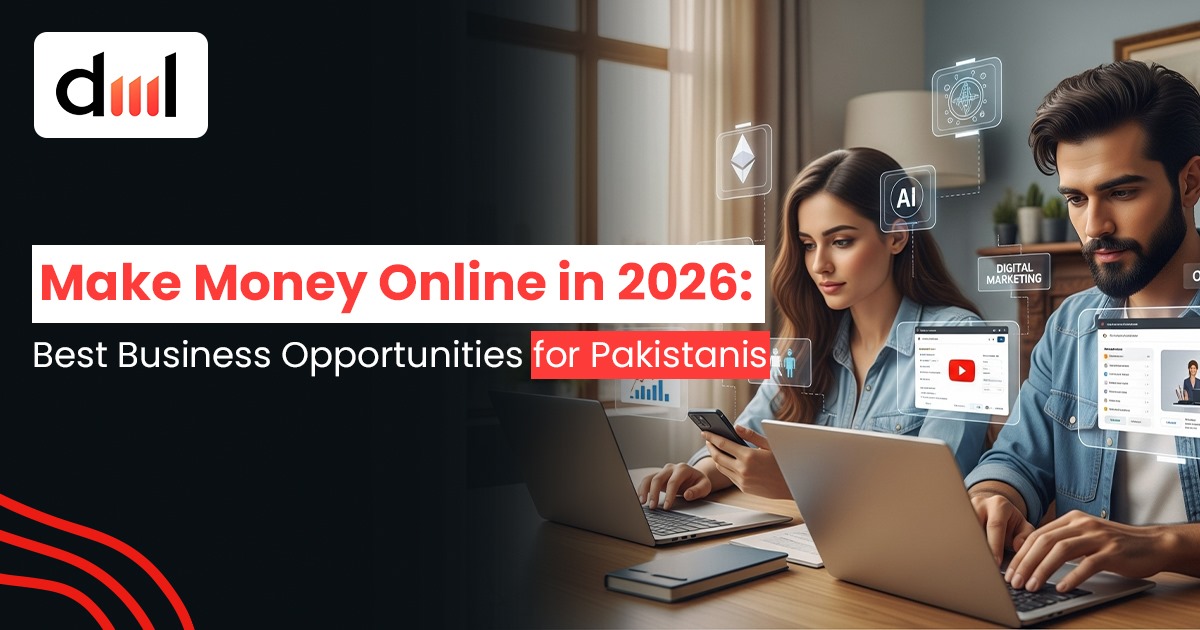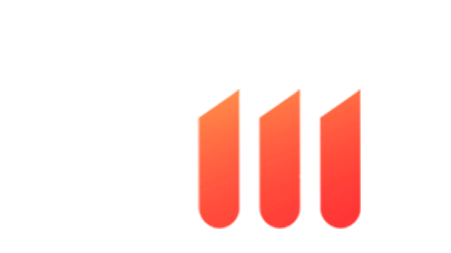For years, backlinks were considered the cornerstone of off-page SEO — the more you had, the higher you ranked. But as we move into 2026, search engines like Google Gemini and Bing Copilot are no longer impressed by sheer link quantity. They now evaluate brand reputation, entity authority, audience interaction, and AI-driven trust signals that extend far beyond hyperlinks.
At DML Lahore, we’ve observed a clear transformation in the off-page landscape: SEO is no longer about “building links” — it’s about building authority ecosystems.
In this article, we’ll dive deep into the modern off-page SEO strategies that will define success in 2026 and beyond.
- The Evolution of Off-Page SEO
Off-page SEO has traditionally focused on external ranking signals — primarily backlinks, social shares, and brand mentions. But 2026 marks a new era where search engines analyze holistic credibility, not isolated link metrics.
The AI-driven evolution of SEO means that search algorithms are capable of understanding context, sentiment, and authenticity. A single brand mention from a trusted source can now outweigh dozens of low-quality backlinks.
Key Shifts in 2026:
- Authority-first indexing: Google now uses AI entity graphs to measure a brand’s topical authority.
- Link value recalibration: Contextual relevance, trust flow, and user engagement around the link determine its weight.
- Social signal integration: Viral reach, share velocity, and audience engagement affect search visibility.
- Reputation metrics: AI sentiment analysis from reviews, social discussions, and press coverage influences rankings.
In essence, off-page SEO in 2026 is not just about getting mentioned — it’s about earning trust signals across the web ecosystem.
- The New Currency: Brand Authority and Entity SEO
Brand authority is the modern version of PageRank. Search engines use Entity SEO — the understanding of people, places, brands, and concepts — to determine which websites represent credible voices within an industry.
How Entity SEO Works
AI-powered algorithms now map websites as “entities” connected through semantic relationships. For example:
- DML Lahore might be connected to entities like digital marketing training, SEO services in Pakistan, and Facebook ads in Lahore.
- The more these entities are mentioned together across the web, the stronger the authority signal.
Building Entity-Based Authority
- Create a Consistent Brand Identity
Ensure your Name, Address, and Phone (NAP) details are identical across directories, Google Business, and social platforms. - Publish on Trusted Sources
Get featured in industry publications, thought-leadership blogs, and digital PR networks. - Leverage Schema Markup
Add Organization, Person, and SameAs schema to link your brand to verified sources like LinkedIn, Wikipedia, or Crunchbase. - Engage in Brand Co-Citations
When other websites mention your brand alongside recognized authorities, it builds associative trust. - Build a Knowledge Graph Presence
Google’s Knowledge Graph 2.0 (launched in 2025) uses verified entity relationships to display authoritative results — a key ranking advantage.
At DML Lahore, our off-page strategies now prioritize brand entity reinforcement over link-building volume — a smarter, future-proof approach.
- The Rise of E-E-A-T and Digital Reputation Management
In 2026, E-E-A-T (Experience, Expertise, Authoritativeness, and Trustworthiness) is more measurable and actionable than ever before.
Google’s Search Quality Rater Guidelines (2026 edition) emphasize authentic brand experience, expert voices, and transparent digital footprints. This means your brand’s reputation online — not just backlinks — directly impacts ranking potential.
Modern Off-Page E-E-A-T Signals
- Verified Expert Contributions: Featuring authors with LinkedIn verification or professional profiles.
- Positive Sentiment Reviews: AI analysis of review tone on platforms like Google Maps, Clutch, and Trustpilot.
- User Engagement Footprints: Average session duration from referral traffic and click-through rates from mentions.
- Authority Mentions: Appearances in reputable industry roundups or news sites.
How to Strengthen E-E-A-T
- Develop Author Profiles
Create dedicated author pages with credentials, achievements, and verified links. - Earn Expert Mentions
Collaborate with journalists and PR outlets through platforms like HARO or Qwoted. - Build a Transparent Online Reputation
Respond publicly to reviews, clarify misinformation, and maintain ethical communication across all digital channels. - Publish Data-Driven Insights
Share original research, surveys, or case studies — something DML Lahore often leverages to build trust within Pakistan’s marketing industry.
Remember: in 2026, your credibility is your backlink.
- Content Distribution and Syndication in the AI Era
Content syndication has evolved into AI-curated amplification. Platforms like Google News AI, Medium Predictive Feed, and LinkedIn Pulse 2026 now use machine learning to identify and promote high-quality brand content.
Modern Content Syndication Strategies
- AI-Targeted Repurposing: Modify your content for multiple platforms using AI tone and audience analysis tools.
- Thought Leadership Columns: Contribute to recognized publications in your niche.
- Video and Podcast SEO: Optimized transcripts, timestamps, and semantic keywords help your multimedia rank.
- AI Amplification Networks: Platforms like Outbrain AI and Taboola Quantum use predictive analytics to deliver content to conversion-ready audiences.
The Key Rule:
In 2026, content syndication isn’t about copying content—it’s about contextual amplification that enhances authority signals across channels.
- Social SEO and Audience Trust Signals
Social signals have become indexable trust metrics in 2026. Google’s new AI crawlers can now interpret engagement velocity — how quickly and authentically users interact with your content.
Important Social Trust Factors
- Engagement Authenticity: AI differentiates between real comments and bot engagement.
- Creator Collaborations: Influencer partnerships with verified profiles pass brand authority.
- Viral Consistency: Sustained audience engagement over time matters more than one-time spikes.
- Social Brand Mentions: Hashtag performance and brand visibility in discussions improve entity recognition.
Platforms like LinkedIn, Instagram, and Threads are now integrated into Search Entity Graphs, meaning your brand’s social credibility directly affects SEO.
DML Lahore helps clients design social amplification strategies that drive both audience engagement and off-page authority.
- AI-Driven Link Evaluation: The End of Spammy Link Building
Link building is not dead — it’s just intelligent now. AI-powered algorithms have made manipulative link building obsolete.
Search engines in 2026 analyze:
- Contextual Relevance: Does the referring page align with your content theme?
- Engagement After Click: Do users stay or bounce after visiting your site?
- Traffic Authenticity: Is the referral traffic from organic user behavior or automated bots?
- Content Sentiment: Is the backlink placed within a positive or negative context?
Future-Proof Link-Building Practices
- Earned Mentions from Media Outlets
Secure organic mentions from press releases, interviews, and expert commentary. - AI-Scored Link Outreach
Use tools like Pitchbox AI or BuzzStream Neo to identify publishers with high trust scores. - Zero-Link Citations
Search engines now recognize “unlinked mentions” from trusted entities — meaning your brand name alone can pass authority. - AI-Curated Link Networks
Predictive algorithms help identify domains that are likely to gain future authority — creating sustainable backlink ecosystems.
At DML Lahore, we call this approach “Intelligent Link Engineering” — building digital relationships, not just links.
- Community and Collaboration-Based SEO
One of the most overlooked but powerful off-page strategies in 2026 is community SEO.
Google’s algorithms now prioritize content and brands that foster real human interaction and collaboration.
Practical Community SEO Techniques
- Niche Forums & Discussion Hubs: Active participation in Quora Spaces, Reddit subforums, or niche Discord groups.
- Collaborative Content Creation: Co-authored guides, webinars, or case studies with other authorities.
- Local Ecosystem Building: Supporting regional business directories, events, and online communities in your target city (like Lahore for DML Lahore).
- Micro-Influencer Engagement: Collaborate with niche creators who bring authentic engagement rather than vanity metrics.
These community-driven strategies create natural brand visibility and contextual relevance, the two most valuable off-page signals in 2026.
- Predictive Off-Page SEO: What’s Next
By 2026, AI-powered prediction models can estimate your off-page performance six months ahead. Tools like Ahrefs Neural Graph, MozAI Insights, and Semrush Vision track sentiment patterns, backlink trust flow, and entity correlation.
Key Predictions for 2026 and Beyond
- Search personalization will rely heavily on brand perception and online reputation.
- Voice and visual search optimization will depend on entity metadata and verified brand associations.
- AI-driven partnerships will emerge between content creators and verified publishers to enhance domain trust.
At DML Lahore, our goal is to help businesses build search ecosystems — where authority, trust, and engagement work together to drive lasting organic growth.
Frequently Asked Questions (FAQs)
- Is link building still relevant in 2026?
Yes, but not in the traditional sense. Search engines prioritize quality over quantity, valuing contextual, authoritative, and earned backlinks rather than bulk submissions or PBNs.
- What is Entity SEO, and why is it important?
Entity SEO focuses on building your brand’s identity as a recognized entity within search engines. It improves topical authority, trust, and visibility across all online mentions — even without backlinks.
- How do social signals affect SEO rankings in 2026?
Social engagement — such as authentic comments, mentions, and shares — helps search engines assess brand trust and popularity. It’s now a measurable ranking factor through AI sentiment analysis.
- What role does E-E-A-T play in off-page SEO?
E-E-A-T (Experience, Expertise, Authoritativeness, and Trustworthiness) determines how credible your brand appears online. Verified experts, transparent communication, and positive reviews boost off-page authority.
- How can DML Lahore help with off-page SEO?
DML Lahore provides advanced off-page SEO services focused on brand reputation, AI-based link evaluation, and entity authority building—ensuring long-term visibility and trust across global search platforms.

